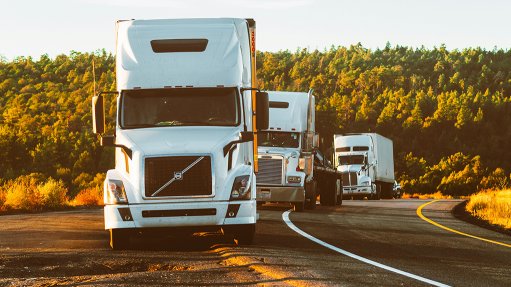
Tyre manufacturer Michelin has launched its latest research focused on total cost of ownership, which is aimed at shifting the mindsets of South African transporters to run more efficient and sustainable fleets.
The ‘2023 Decarbonising South Africa’s Transport Sector’ outlines that transport is the third-largest emitting sector in South Africa, with almost 55-million tonnes of CO2 emissions, contributing more than 10% to the country's national gross emissions.
This ratio is similar globally, where the transport sector is one of the most significant contributors to greenhouse-gas emissions, with most transport still running on internal combustion engines powered by fossil fuels.
Many transport operators locally are dealing with a unique set of challenges, which include the rising cost of fuel, loadshedding, and safety and security, as well as logistical issues. The reality is that many transport operators, especially the small- to medium-sized operators have not yet begun to think about how they can run fleets that are efficient, profitable and sustainable.
“Currently, transport owners are not managing the operating costs of their businesses in a holistic manner. By looking at the cost of fuel, driver salaries, maintenance and repairs, purchasing or renting a truck and the cost of purchasing tyres individually, transport owners are unable to see how these often disparate parts of the business can impact each other and be managed better to reduce operating costs and improve sustainability,” Michelin truck and bus division business-to-business director Charl Lensley says.
For example, an average of 30% of a transporters' operating costs are attributable to fuel consumption and 25% to salaries. However, in Michelin’s view, buying the right tyres, which only accounts for 5% of a transporter’s operating costs, can reduce fuel consumption, reduce time and money lost from breakdowns and increase sustainability.
Fleet owners calculate the cost per kilometre (CPK) to optimise tyres by selecting durable tyres that can be regrooved or retreaded for reuse. This has been found to be an impractical way of measuring the true impact tyres can have for a fleet business, Michelin says.
Choosing quality tyres with a low rolling resistance is one major way to reduce fuel consumption. For example, a transporter who can reduce rolling resistance by 1 kg/t for a 40 t truck, can save more than 2 ℓ of fuel every 100 km.
For perspective, Michelin says a fleet of 50 trucks can save about R1.3-million a year by upgrading from Grade B to Grade A tyres with a low rolling resistance.
Michelin says its own suite of products and services can help transporters measure their carbon emissions. The Michelin Connected Fleet technology enhances this capability by harnessing advanced systems to provide real-time data insights, allowing fleet operators to make data-informed decisions that contribute to sustainability and efficiency.
“We know that the carbon tax is coming, and this will be another operating cost that fleet operators must factor in. For smaller fleet operators, who are currently under financial pressure, now is the time to manage their operating costs in a smart, holistic and sustainable,” Lensley says.